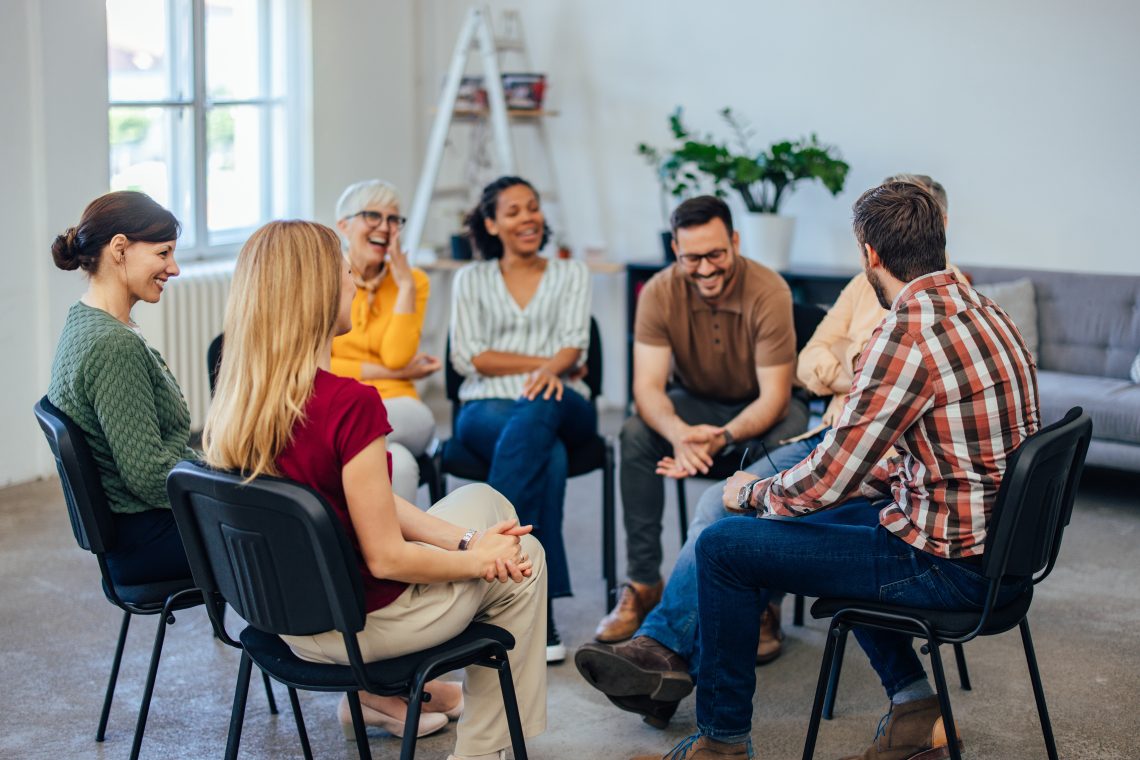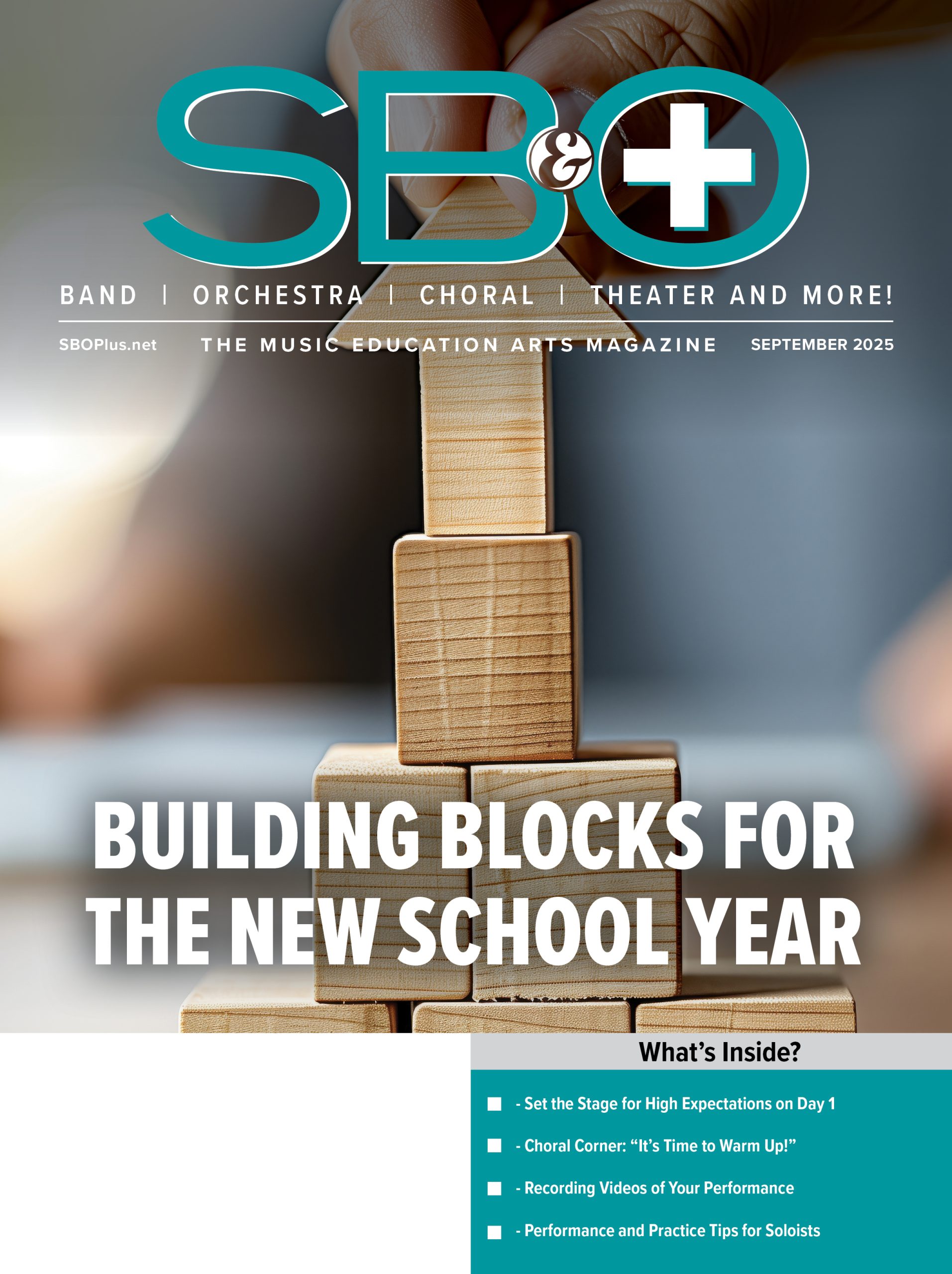Have you ever felt isolated or found the parking lot empty when you finally leave the school building? Have you ever wanted more people to come to your concerts and performances? Would you like to have more support from the community, administrators, families, and colleagues? As much as we would love to have other people reach out and ask how they can help, building and sustaining relationships is something every music teacher must do proactively every day. It starts with one conversation at a time.
It is nearly impossible to place a value on feeling supported—pedagogically, logistically, philosophically, administratively, as well as mentally, physically, and emotionally. From a sense of support comes greater satisfaction, which ultimately fuels our passion and drive to keep going. In 2023, the National Association for Music Education (NAfME) published A Blueprint for Strengthening the Music Teacher Profession, which is the culmination of a two-year study surrounding the challenges current and future music education students face before entering a music education degree program, throughout their time in college, and during the first, critical five years in the field. A critical piece of the Blueprint focuses on the importance of relationships that are formed during the college years and carry forward into a lifelong career.
University Ties. Many of us look back on our years in college as some of the best days of our lives, mostly because of the people we were with! Perhaps it was the revered professor whom we saw as wise and all-knowing, or maybe it was the teacher who challenged or even frustrated us, but who, as we later figured out, had our best interests at heart. Maybe it was a classmate who just seemed to know everything (think music theory or music history classes), or maybe it was a friend who had to work hard and pull the all-nighter to finish a methods project or to prepare for the piano proficiency. Regardless of our backgrounds and what prerequisite skills we had, college helped us find our people. Our inner network was formed, and we knew who we could count on to help prepare us for the recital, the jury, the aural skills assessment, the final, and ultimately for a career. Capitalizing on the relationships formed during our undergraduate or graduate degree programs provides a rich and deep level of connection. Never hesitate to reconnect with those professors and peers to ask for ideas, seek help, or just talk shop. The bonds that were formed last a lifetime, and support is just a phone call or text away.
Create a Cohort. For many new music teachers, it is difficult to begin a career, especially if you move to a new community. To combat the feeling of isolation, seek out like-minded people to connect with. Maybe they are music colleagues in your school or in a neighboring town or in a different department in your building or district. Maybe there is an online community or affinity group for new teachers you can join. Regardless of how you find your “new” network, it is important to build relationships with people you can trust and who respect your ideas and contributions as well as your personal boundaries. As music educators, we often gravitate toward others who share our same genre of teaching. I encourage you to branch out and find divergent thinkers in our cohorts of colleagues. If we are truly going to build support for our programs and feel supported, we need to surround ourselves with people who are similar and those who challenge us to think differently and see possibilities we may not have considered.
Professional and Community Organizations. The music education profession is fortunate to have hundreds of professional associations and industry partners who are ready and willing to support music educators at every level and in every corner of the United States. NAfME’s family of music education associations offers professional learning opportunities, networking, and a robust catalog of research and resources. Many organizations and companies offer free support, and most leaders of these groups are willing to connect, especially when a new teacher, or a teacher in a new situation, requests help. You can also connect with local music retailers, private music teachers, and community ensembles. Your circle of support can grow locally, at the state level, and nationally. Additionally, NAfME facilitates the Music Education Policy Roundtable comprioed of over 85 organizations who support music education and music educators. Check out their information on the NAfME website.
Find a Mentor. There is tremendous value in having a trusted friend or colleague you can go to for advice and share your ups and downs. It is impossible to know everything about teaching students through music, and we can learn from the experience and expertise of others. Whether you’re a college music education major, someone just starting out, or a veteran teacher, everyone can benefit from having a mentor. Many of the state MEAs have excellent mentoring programs and NAfME has resources for finding a mentor on its website. Even if you feel like you have everything under control, a mentor can provide a fresh perspective and be a supportive thought partner.
After nearly three decades in our profession, I can personally attest that no one is ever alone. Whether you teach in a small rural school, the center of a major city, the suburbs, or small-town USA, or whether this is your first year or your 35th year, someone is always willing to listen and offer encouragement. Music educators are people persons, and NAfME is a collaborative community to support music educators and advocate for equitable access to music education. At the heart of that education is YOU and we are here to help!




























